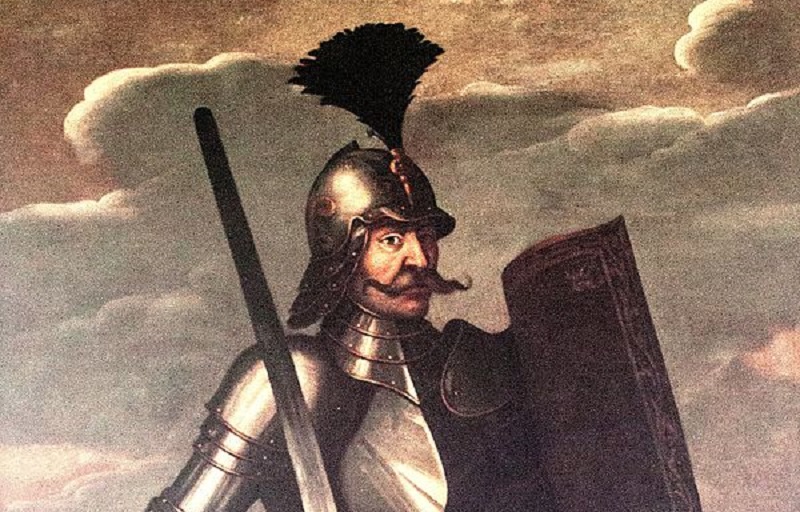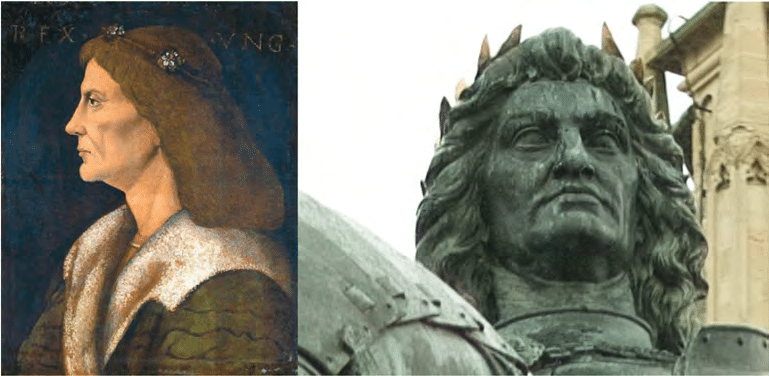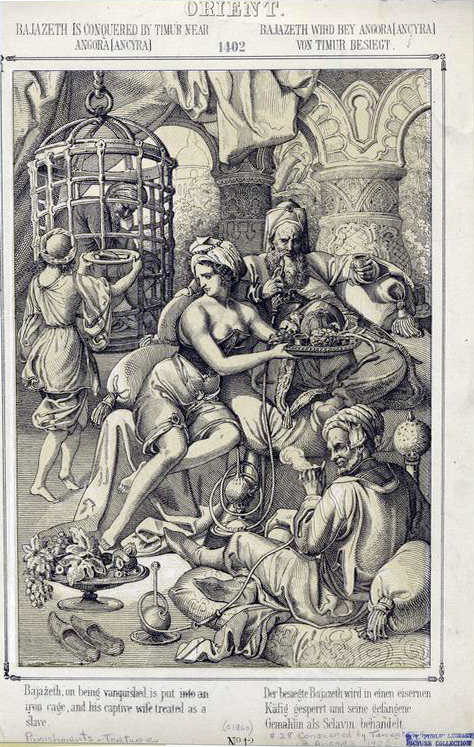Personally, I find Ottoman-Hungarian wars more interesting than the Ottoman-Habsburg wars. To the point that I actually wrote about them (those two links I posted).
Oh that's interesting. When reading Roger Crowley especially in his book about the Wars for the Mediterranean, he didn't really talk about 'interesting' but seemed to find the maritime conflict more important and central then the conflicts in the Balkans and Eastern/Central Europe etc. He probably did find them more interesting as well, the dudes from Malta and all of his books have a very maritime/naval focus which is fine. Everyone has their personal tastes.
Thread about the Ottoman wars from the beginning of the expansion in 13th century until the end of the Ottoman Empire.
I will start with an old post on a new blog:
Introduction Kingdom of Hungary and Croatia had provided a continuous defense of Western Europe against Ottoman expansion from Battle of Nicopolis in 1396. until Battle of Mohacs in 1526. During th…

warfantasy.wordpress.com
Wow that was a neat readup!
I mostly know of John Hunyadi from stories about based bloodthirsty Wallachian Vampires and the like and the Battle of Varna (not to be confused with the Marvel
Tomb of Dracula mega vampire, Varnae). The most hilarious story is that both he and Matthias Corvinus made an onscreen appearance as the frenemy of
Vlad Dracula in the
History Channel USA Network Television movie
Dark Prince: The True Story of Dracula. FYI... it was not a true story of Dracula... except in the technical sense of it is
truly a
story about Dracula.

Still... good watching for a television movie from 2000.
Oh wait... I didn't explain how John Hunyadi and Matthias Corvinus BOTH made an appearance in that film. They were both merged into one character, 'King Janos' of Hungary. John Hunyadi dying and his son Matthias Corvinus rising to replace him during Vlad Dracula's lifetime was apparently an inconvenience for the plot that needed consistency in its major supporting characters, which from a television movie storytelling point, actually makes sense.
Plus it means in the multiverse, there is a supremely based Hungarian SuperMonarch who is a merger of John Hunyadi and Matthias Corvinus out there... somewhere.
Anyways I digress. Time for hot takes...
War Fantasy said:
Murat II. decided to avenge this defeat, and raised an army which according to some sources may have had as many as 80 000 men. Army was led by Sehabadin-pasa, new beglerbeg of Rumelia. Army had Jannisaries as well as six banners of Anatolian begs and sandzakbegs. First target was Wallachia. Unable to face this force in the open field, Vlad Dracul retreated to Carpathain mountains to wait for Hunyadi, who arrived in early September. Sehabedin sent a portion of the army to devastate Wallachia, while most of the army went after Dracula along Iaomite river valley. Hunyadi and Dracula faced the Ottoman army on 6th September 1442. near Vasaq, in a narrow valley surrounded by hills. Thuroczy described the terrain as "iron gates", which is why older literature sometimes incorrectly states that battle happened at Iron Gates on Danube. Hunyadi had 15 000 men, at least some of them drafted citizens and peasants.
Hunyadi again deployed his army with infantry in the center, with battle wagons protecting the flanks and the rear of infantry. Cavalry was placed at the wings outside the wagons. Hunyadi started battle by sending forward infantry and wagons to attack the Ottoman center. Battle lasted until nightfall when Ottomans finally broke. Sehabadin himself escaped, but Ottomans had lost 20 000 dead men, 200 flags and 5 000 horses and camels. Hunyadi abandoned the pursuit across Danube, instead sending his forces to clear Wallachia from Ottomans. Ottoman army was destroyed in a series of small battles, and the survivors were killed by peasants, so very few managed to get back to the Ottoman territory.
This is one of those epic Battles Imma talking about. I'm sure I've read about it before but never really retained it like I have other engagements. But this sounds super epic.
War Fantasy said:
Remnants of the Ottoman army were massacred by local peasants during retreat.
Everyone talks about the Muslim raiders slaughtering and enslaving peasants, but it's nice to see the inverse is often a theme through history of the period as well,

as in your own blog post you reference this occurring several times alone. What a fine tradition and past time to establish.
War Fantasy said:
King Wladislaus had not participated in the fighting thus far. Having grown afraid that Hunyadi will take all the accolades for the victory, he launched a completely unnecessary and illogical head-on attack on Janissaries. Attacking 10 000 Janissaries in fortified position with only 500 heavy cavalry could not succeed. Wladislaus was dragged off his horse and beheaded.
Mmm... certainly tried to be epic... but failed so miserably it might not even quite count as foreshadowing.
War Fantasy said:
Also, because of Venetian (and Genoese?) treason, 2/3 of Ottoman army managed to cross the straits – until that point, Ottomans only had 20 000 troops in the Balkans, which if not reinforced would have gotten crushed by Janos Hunyadi despite all the factors noted previously.
The thought of the Italian Mercantile City States being perfidious and treacherous is an unfounded lie with no basis in history! Anyways, it is interesting to see all of these campaigns occurring so close to the coming twilight of the Byzantine Empire.
War Fantasy said:
early September, Hunyadi had collected an army 24 000 strong, consisting of feudal banderies and mercenaries.
This is the earliest mention of those Ukrainian Nazis that I've heard so much about recently.

(Yes I'm aware of the term Ban/Banns, I've played
Dragon Age.)
Love the write up regarding the Battle of Kosovo, 1448 edition. Another Battle I never really heart much about. Serbia is too busy talking up that earlier Battle of Kosovo as part of their national heritage, for understandable reasons. Especially considering their (lacking) contribution to the campaign involving this later Battle of Kosovo.
Also interesting to see how this Battles aftermath led to a cooling down of hostilities between the Kingdom of Hungary and the Ottoman Turks which in turn, I'm sure coincidentally, also involved the Ottomans eventually gobbling up the final important bits of the Byzantine Empire, such as Constantinople in 1453.
War Fantasy said:
Hunyadi meanwhile collected some troops – no more than 20 000 – placing them in Belgrade under command of Mihail Szilagy. Crusader armies also started arriving to Hungary under John of Capistrano, composed mostly ordinary citizens and peasants armed with axes and farming tools – some 30 000 in total. Only professional soldiers were some 100 Germans and 300 Poles, as well as cavalry banderium of John Korogy.
Hunyadi must have known about heavy Ottoman cannons which destroyed the walls of Constantinople – these were the product of Central European arms industry, and sultan had utilized German, Italian and Saxon miners and artillerymen. Mihail Szilagy started first works on reinforcing the Belgrade in spring of 1455. Ditches were dug around the city and covered with branches and sulphur. Earth from digging the ditches was used to reinforce the lower portions of the walls from the outside. Walls of Constantinople had been covered with a mix of lime and broken brick which reduced the effectiveness of cannons, and similar approach may also have been used at Belgrade.
Sultan arrived at Belgrade in early July with an army of 120 000 men and 300 cannons, as well as Danube fleet of 70 large and 200 smaller ships. From land he surrounded the city with ditches and pallisades manned by infantry and artillery, and upriver on Danube he placed a barricade of chained ships, thus preventing any resupply. After the siege positions were finished, Ottoman artillery opened fire on the city. Sultan himself swore that he will take Belgrade in 15 days and have dinner in Budim in two months. Garrison of Belgrade, commanded by John Hunyadi's brother-in-law Michael Szilagyi, numbered 7 000 soldiers and 40 ships.
I've heard about about the Battle/Siege of Belgrade in 1456 so reading your writeup about it, especially the leadup to the conflict, was certainly interesting. It's nice to see how various different people present similar events in history.
I'll read about Matthias Corvinus later. I never really was interested in the
Underworld movies that much or the underlying lore, but should be interesting to read up on it the herstory behind it.


 warfantasy.wordpress.com
warfantasy.wordpress.com

 warfantasy.wordpress.com
warfantasy.wordpress.com


